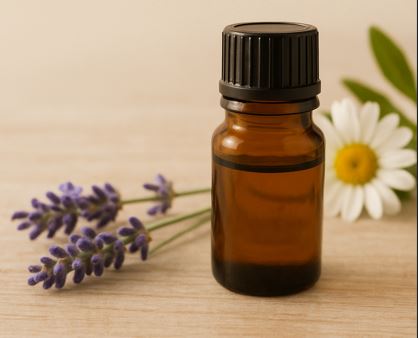Have you ever caught a familiar scent, a fragrant flower, the spices used in a favourite family dish, or the earthy aroma of rain on pavement and instantly been transported to a cherished memory or a moment of peace? This isn’t mere nostalgia; it’s the profound impact of scent on our emotions and well-being.
The Science Behind Scent and Emotion
Our sense of smell is intricately linked to the limbic system, the part of the brain responsible for emotions, memories, and arousal. This direct connection explains why certain aromas can evoke vivid memories or induce a state of calm almost instantaneously.
A notable study conducted in 1994 introduced the scent of Play-Doh to patients undergoing MRI scans. The results were remarkable: participants experienced a 63% reduction in anxiety during the procedure, suggesting that even a simple, familiar scent can have a significant calming effect in clinical settings.
Building upon this, a 2023 systematic review analyzed 27 studies and found that aromatherapy significantly reduced anxiety in patients awaiting various medical procedures. The review highlighted that scents like lavender and citrus were particularly effective in promoting relaxation and reducing stress levels.
Practical Ways to Incorporate Calming Scents into Your Routine
Integrating soothing scents into your daily life doesn’t require elaborate rituals. Here are some simple practices to help you harness the calming power of scent:
- Choose Your Scent: Select an aroma that evokes comfort and tranquility for you. While lavender is commonly associated with relaxation, other scents like citrus, sandalwood, or even the smell of fresh-cut grass can be equally soothing.
- Create a Scented Environment: Use essential oils, scented candles, or incense to infuse your living or workspace with your chosen aroma. Diffusing these scents can help create a calming atmosphere conducive to relaxation.
- Mindful Breathing: When you encounter your chosen scent, take a moment to close your eyes and inhale deeply. Allow the aroma to fill your senses and bring your focus to the present moment, helping to alleviate stress and anxiety.
- Incorporate into Daily Activities: Add your chosen scent to daily routines such as bathing, meditation, or journaling. Consistent exposure can reinforce the calming effects and help establish a sense of peace.
The Therapeutic Potential of Scent
Beyond personal use, scent has been explored in various therapeutic contexts. For instance, a 2024 study found that aromatherapy significantly reduced patient anxiety and improved image quality during MRI scans. Patients who received aromatherapy were able to remain more still, leading to clearer images and a more comfortable experience.
Additionally, research indicates that certain scents can enhance mood and cognitive function. A 2022 study demonstrated that inhaling essential oils like rosemary and peppermint improved memory retention and alertness, suggesting that scent can also play a role in cognitive well-being.
Honoring Your Body’s Natural Responses
Incorporating scent into your daily routine is more than just a pleasant experience; it’s a way to honor your body’s natural responses to sensory stimuli. By consciously choosing aromas that promote relaxation and well-being, you can create an environment that supports your mental and emotional health.
If you’re interested in exploring how hypnotherapy can further enhance your relaxation practices, consider booking a session with Suse at Mangawhai Hypnotherapy.



